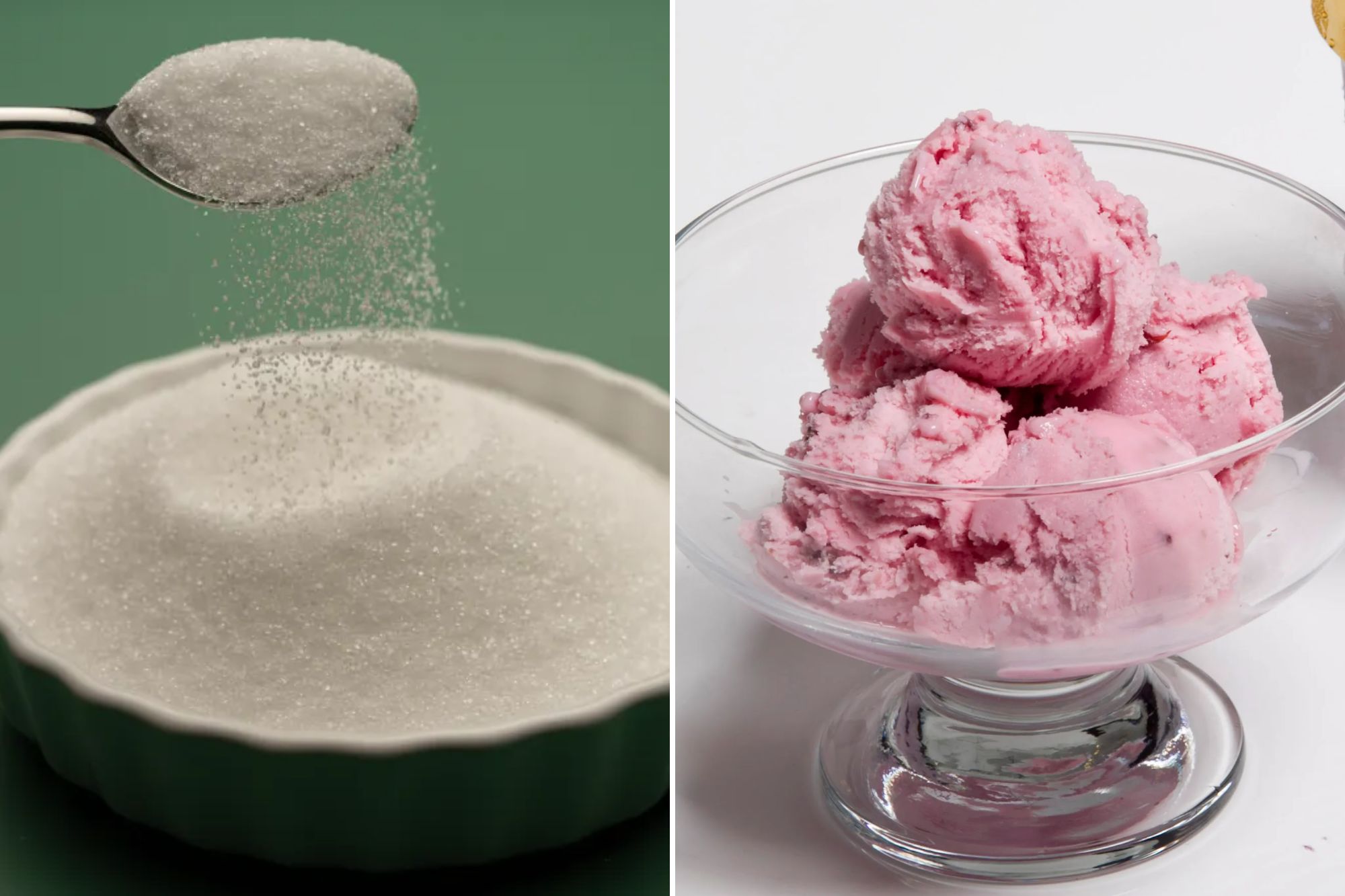There is nothing sweet about this.
A new study suggests that a popular sugar substitute in everything, from protein bars to low calorie ice cream, can be messy with brain blood vessels.
It is the last red flag in a growing research body that connects the common ingredient with a higher risk of stroke and other severe cardiovascular problems.
Erythritol is a type of carbohydrates called sugar alcohol. It is naturally found in small amounts in fruits and vegetables, and our bodies even produce it in tiny doses during normal metabolism, according to the Mayo clinic.
But the version added to Foods is made commercially by fermenting corn, and is shown in tons of “keto” products, “friendly with diabetes” and “Zero sugar”.
With only 6% of the calories of regular sugar and about 70% of sweetness, Erythritol is marketed as a smart choice for weight control. It also does not increase blood sugar or insulin levels, and even helps to combat dental disintegration by directing bacteria causing cavities.
“We decided to study Eritritol because it is widely marketed and consumed as a” safe “sugar alternative, told Women Health Auburn Berry, author of the main study and postgraduate student at the University of Colorado Boulder.
“However, emerging evidence has linked Erythritol’s intake to an increase in risk of cardiovascular and cerebrovascular events, particularly an ischemic stroke,” he added, emphasizing that so far the damage has not been completely understood.
To obtain a clearer image, researchers exposed the cells in the blood vessel of the human brain to a solution of erythritol containing about 30 grams, about the amount of an artificial sweetened soda can.
In just three hours, they saw worrying effects: oxidative stress increased by 75%, which can harm both cells and nearby tissue.
Cells also produced 20% less nitric oxide, a key compound that helps blood vessels relax. The Eritritol also triggered more compounds than the vessels and reduced a protein that helps to break clots.
Researchers concluded that sweetener “can potentially contribute [an] Increased risk of ischemic stroke, “which blocks blood flow into the brain.
The CDC estimates that almost 9 out of 10 times are of this type. Cerebrovascular accidents can cause permanent brain deaths or deaths and are the main cause of long -term disability in the United States.
“This study offers a valuable view of the potential risks of erythritol in the health of brain blood vessels, especially for people who seek to improve or protect their vascular and cognitive function,” said Dr. Thomas M. Holland, a doctor-scientist who was not involved in the study today.
“The findings challenge the perception of erythritol as a substitute for harmless sugar and emphasize the need for moderation, especially in those with risk factors for vascular disease,” he added.
The study was performed in a laboratory, not humans, so more research is needed to understand exactly how it reproduces in real life. However, the findings echo the previous research that has aroused serious concerns.
By 2023, researchers at the Cleveland Clinic studied more than 4,000 adults and found that those with the highest erythritol levels in the blood were more likely to suffer from heart attacks or cerebrovascular accidents for the next three years.
And in 2024, the same group of scientists found that Erythritol consumption made participants’ platelets adhere to, increasing the risk of blood clots.
“It’s very worrying,” said Dr. Stanley Hazan, a specialist in preventive cardiovascular medicine and the main author of the 2023 and 2024 studies.
“We know that people who buy these products are trying to do something good for their health by eating foods that are promoted as best for them. But in fact, the risk of damage may actually increase,” he told the Cleveland Clinic.
The FDA considers that the erythritol is safe, largely because it occurs naturally in small quantities. But, as a food additive, it is used at concentrations up to 1,000 times higher than what is in fruits or our bodies.
“Eritritol that occurs naturally is not the problem,” said Hazan. “It is the high dose of erythritol of packaged foods that we see that they have very adverse effects.”
To make things more annoying, Erythritol is not always easy to detect. It is within the broadest category of “sugar alcohols” on nutritional labels, which are not needed to name specific ingredients.
However, there are clues: Erythritol is often hidden in products labeled “keto-Safe”, “sure of diabetes”, “without sugar”, “low sugar”, “naturally sweetened” or “zero-calories”.
It is also a key ingredient in popular sugar substitutes such as Stevia Natural Truvia and Splenda, and often appears in sugar -free ice cream, gum, candy, baked products, protein bars and even fruit propagations.
#ingredient #calorie #popular #ice #cream #increase #risk #stroke
Image Source : nypost.com
